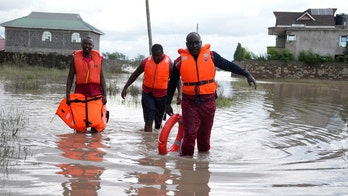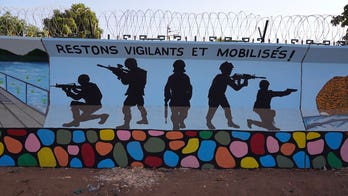Kenyan protesters vow to continue demonstrations against proposed tax increases, following violent clashes that left at least 23 people dead.
Kenyan protesters have vowed to continue their demonstrations against new tax hikes, following violent clashes that left at least 23 people dead and dozens injured. The protests, which have spread across the country, are the most serious crisis of President William Ruto's two-year-old presidency.
The unrest began on Tuesday when police opened fire on crowds who massed around parliament and broke into the assembly's compound, after lawmakers had voted through the contentious tax measures. According to the Kenya Medical Association, at least 23 people were killed and another 30 were being treated for bullet wounds.

Kenyan Protests Rage On, Demanding President Ruto's Resignation Over Tax Hikes
The protests have been organized primarily through social media platforms, and protesters have no formal leadership. They are demanding that the entire finance bill, which includes a range of tax increases, be scrapped. Many are also calling for President Ruto to resign.
President Ruto has defended the tax increases, saying they are necessary to avoid a budget gap and to obtain financing from lenders such as the IMF. However, protesters argue that the new taxes will hurt ordinary Kenyans who are already struggling with rising living costs.

Kenyan Protests Rage On, Demanding President Ruto's Resignation Over Tax Hikes
In response to the protests, the government has ordered the army to be deployed to help the police deal with the "security emergency." However, there have been no reports of troops on the streets of Nairobi on Wednesday.
Protesters have vowed to continue their demonstrations on Thursday, using the hashtag #tutanethursday, or "see you on Thursday" in a mix of Swahili and English. Posts on social media have urged people to occupy State House, the president's office and residence, on Thursday, and the local offices of the World Bank and the International Monetary Fund (IMF) on Friday.
The protests have been largely peaceful, but there have been some reports of violence and vandalism. On Tuesday, a police vehicle was burned and several businesses were looted. Aid group Medecins Sans Frontieres (MSF) said its staff were left hurt and traumatized when stones were thrown at one of its ambulances during the unrest.
The Kenya Red Cross also said its staff and vehicles were attacked, without going into further detail.
The protests are a major test for President Ruto, who won the election almost two years ago on a platform of championing Kenya's working poor. However, he has been caught between the competing demands of lenders such as the IMF - which is urging the government to cut deficits - and a hard-pressed population.
It remains to be seen how long the protests will continue and how the government will respond. However, the demonstrations have already highlighted the deep frustrations and anger among many Kenyans over the rising cost of living and the government's economic policies.










